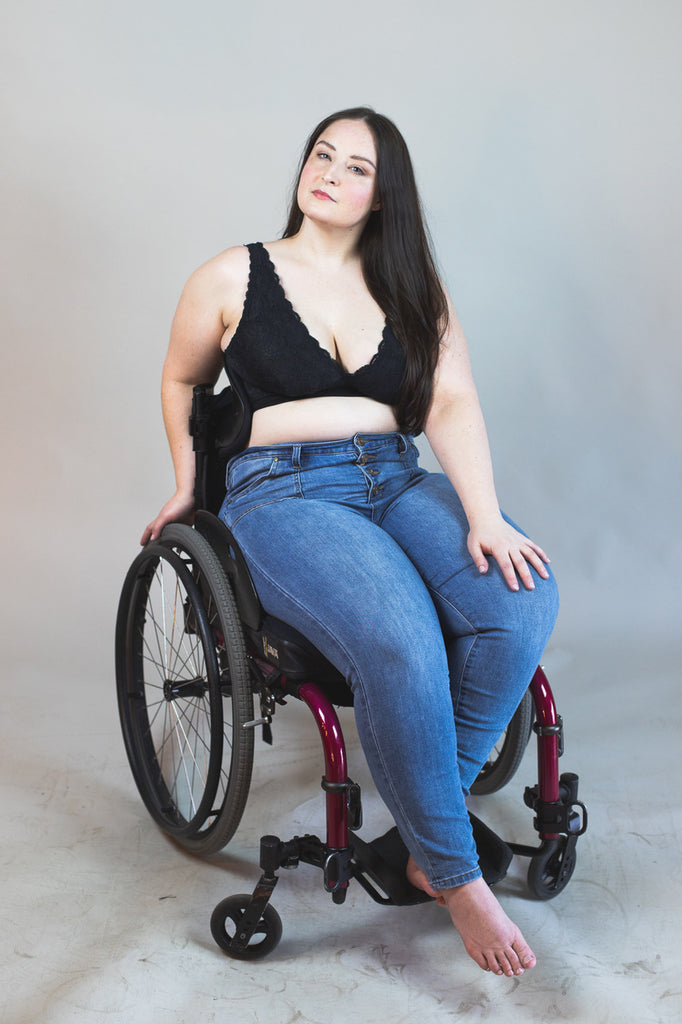Lucy Richardson, May 2021.
On the use of the word ‘Disabled’ as important in the pursuit for identity and the challenging of ideas. Disability is something not a lot of people understand and often we feel like we have to explain/justify ourselves, language and culture is a big part of this - so too is the idea that disability is something to be “overcome” lets challenge these ideas.
Lucy Richardson is from Sydney and now lives in New York, she tackles this discussion.
Language weaves itself through the fabric of our society, both reflecting and influencing cultural norms. Some people find power in reclaiming words that were once launched at them as insults, while other people find comfort in carefully selecting words that they imagine will smooth over the edges of reality. It's this second group that I come across quite often. They employ euphemisms and unusual phrasing to dance around what I consider an undeniable fact - I am disabled.
That one little word makes them cringe. They seem much more comfortable with words like "differently-abled", "handicapable", "special needs", or even "people of determination". They are puzzled by my insistence on calling myself disabled and sometimes even urge me to remove those three syllables from my vocabulary. I am equally puzzled by this approach, because no matter what words I use, I will still be disabled! Changing the words doesn't change the facts, and removing a word won't remove my identity.
As euphemisms are used when referring to "something unpleasant or embarrassing" (as per the dictionary definition), it seems that discomfort with the word "disabled" is linked to discomfort with disability itself. People can't say "disabled" because to them, disability is inherently negative and it would be impolite to draw attention to such a tragedy by saying the very word.

Alt text: Lucy sitting confidently & relaxed in her wheelchair resting her left hand on knee wearing a black crop top & blue jeans.
This world view does not reflect my reality, where my existence as a disabled woman has brought me so much joy. I have found friendship and community, discovered new passions and hobbies, and uncovered strength and confidence within myself. When the word disabled cannot be uttered, the full truth of my existence, with its every peak and dip, is denied. Disability is inextricably entwined with some of the highest points in my life, some of my greatest strengths, and some of my most memorable experiences.
There are certainly intrinsic challenges, the dips to my peaks, and for me this includes things like the pain and fatigue from my invisible disabilities. However, many of the difficulties are actually external, like the world's barriers and inaccessibility, society's exclusion and discrimination, and people's biases and stereotyping. When people think so negatively of disability that they cannot even say the word, their actions (or lack thereof) will reflect this. Those difficulties will be perpetuated, rather than improved, and go on to contribute to another common narrative based on the idea of disability as tragedy - overcoming a disability.

Alt text: A quote from Lucy in white text on a scarlet red background.
How can I overcome an integral part of who I am? I have embraced disability as a vital part of my identity, in all its imperfect beauty of peaks and dips. I recognise how it influences the way I interact with the world, and how the world interacts with me. I find it both impossible and undesirable to overcome disability and leave it behind me.
What I want to overcome are the negative attitudes to disability, and the misguided notions around saying that very word. Then we can have the world overcome its barriers and inaccessibility, society overcome its exclusion and discrimination, and people to overcome biases and stereotyping.
I am a woman, an advocate, a partner, a reader, a sister, a professional, a daughter, a creative, an aunt, a dancer, a friend… and I am disabled and proud.
Picture: Lucy Richardson (@dietcokelife)











4 comments
Hi I’ve had a stroke and my son and my son Spina bifida regular problems will you leave so I understand a little bit he is in my hero
Inspired
Hey Lucy,
I get it. I’m tasked with doing the online posts @work. I’m having a good time at it & no idea until I do it.
I got the vibe that people were finding the it a struggle during covid.
My line was; pfff! Welcome a disabled person into your world. They can tell you how to do tough stuff.
Thank you for being brave to share your story! You’re beautiful! As you have basically said, our identity shouldn’t be limited to what the world says is okay! We are beautiful & we are disabled! I’ve had a number of disabilities for the last 30 years & it hasn’t been til the last 5 years that people like yourself have been brave enough to share your story & encourage others to know they’re okay too!☺️
Leave a comment